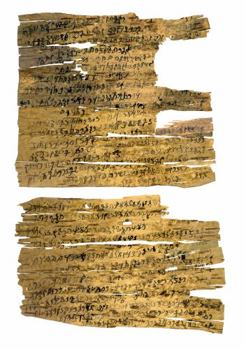Three Early Mahāyāna Treatises from Gandhāra: Bajaur Kharosthī Fragments 4, 6, and 11 Volume 7
(Book #7 in the Gandharan Buddhist Texts Series)
The Gandhāran birch-bark scrolls preserve the earliest remains of Buddhist literature known today and provide unprecedented insights into the history of Buddhism. This volume presents three manuscripts from the Bajaur Collection (BC), a group of nineteen scrolls discovered at the end of the twentieth century and named after their findspot in northwestern Pakistan. The manuscripts, written in the Gāndhārī language and Kharoṣṭhī script, date to the second century CE. The three scrolls--BC 4, BC 6, and BC 11--contain treatises that focus on the Buddhist concept of non-attachment. This volume is the first in the Gandhāran Buddhist Texts series that is devoted to texts belonging to the Mahāyāna tradition.
There are no known versions of these texts in other Buddhist traditions, and it is assumed that they are autographs. Andrea Schlosser provides an overview of the contents of the manuscripts and discusses their context, genre, possible authorship, physical layout, paleography, orthography, phonology, and morphology. Transliteration and translation of the texts are accompanied by notes on difficult terminology, photographs of the reconstructed scrolls, an index of Gāndhārī words with Sanskrit and Pali equivalents, and a preliminary transliteration of the scroll BC 19.
The ebook edition of Three Early Mahāyāna Treatises of Gandhāra is openly available at DOI 10.6069/9780295750750.





